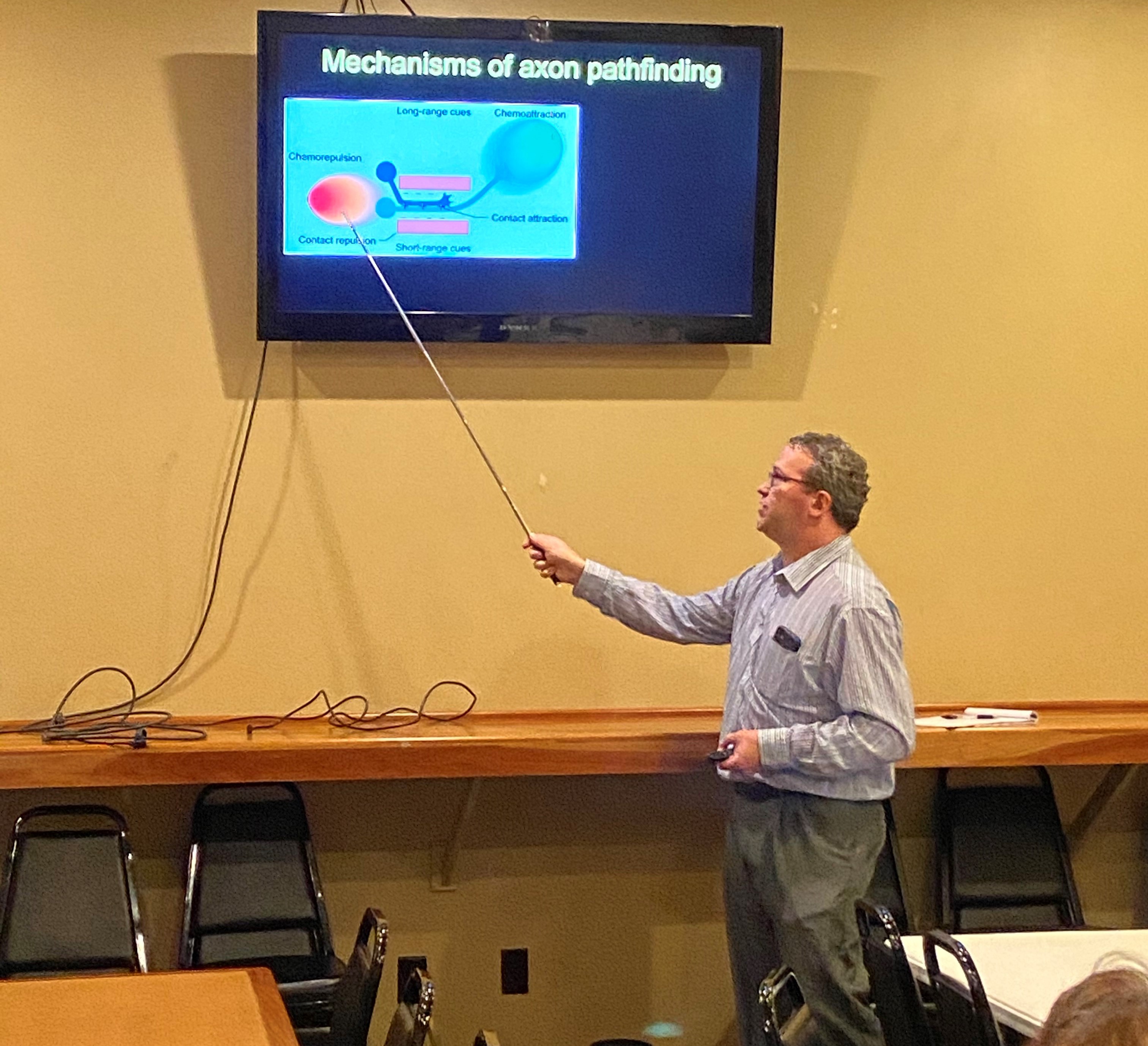Faculty Mentoring
The goal of the faculty mentoring program is to ensure both the success of new faculty and their retention at the institution. Our primary measure of success is based on the quality of scientific contributions to a field of inquiry, as judged primarily by the quality of peer-reviewed publications and by attracting extramural funding. We also value success in communicating scientific knowledge to peers, to students and to the lay public, through invited lectures and teaching.

Program Details
Overview
The mentoring program provides a formalized mechanism by which junior and advancing career faculty can obtain advice and feedback as they establish their scientific program. The mentor serves the role of a seasoned, experienced advisor on topics ranging from scientific strategies of the mentee to the mechanics of navigating bureaucratic requirements of the institution. The mentee should expect to enjoy the confidence of the mentor. Likewise, the mentor ideally does not serve an administrative or evaluative role for the activities of the mentee.
Prior to beginning the mentoring process, both mentor and mentee are asked to indicate to each other the expectations of their relationship. Of critical importance is that the independence of the junior investigator is always respected and that scientific competition between mentor and mentee is avoided. Discussion of conditions under which the relationship might be disengaged should occur. Any problems in the mentoring relationship are discussed with our Director.
Faculty Orientation
Upon arrival at WVU, faculty attend a formal orientation session about the procedures of promotion and tenure, including annual review procedures. Each fall semester, the School of Medicine holds a social event for all faculty, hosted by the Dean, at which Department Chairs introduce their new faculty members. This social event provides an opportunity for new faculty members to meet other members of their entering class. New faculty are made aware of the Faculty Development Program at the Health Sciences Center, which sponsors special seminars that cover such topics as time management, writing exam questions for students, and updates on promotion and tenure policies. The Faculty Development Program also offers a teaching scholars program. New faculty are scheduled by our Director to meet personally with senior administrators at the Health Sciences Center, including the Vice President, the Senior Associate Vice President, the Dean of the faculty member’s school, and the Associate Vice President for Research. These meetings begin the development of an effective working relationship and useful communication channel between new faculty members and senior administration.
Getting Started
Laboratory space and any required renovations are negotiated with the director and department chair. The design of space is coordinated with the new faculty member and renovations are contracted and managed through the department office. Essential laboratory equipment should be purchased prior to arrival of the new faculty member. Experienced planning and consistency in vendor relationships contribute to our goal of providing a workable laboratory from the first day of arrival on the campus.
Investigators using experimental animals participate in an orientation and training session offered through the Office of Laboratory and Animal Resources, and meet the director of the facility. Critical steps in setting up a laboratory such as establishing e-mail and telephone accounts and getting listed in directories should be accomplished through departmental offices. Each new faculty member meets with the neuroscience web site manager to provide information for launch of their web site. Faculty web sites follow a general template for ease of creation and updating by the web site manager. Each faculty member is provided a copy of “At the Helm, A Laboratory Guide,” by Kathy Barker, Cold Spring Harbor Laboratory Press, 2002, which we find to be an effective “field manual” for their new challenges.
Each new member meets with the Research and Grants Coordinator for their particular focus area or through their department to review procedures for ACUC, IRB and biohazard protocol submission. Application deadlines for competitive internal funding sources for research are available through links on the neuroscience web site. We encourage each faculty member to utilize two of these funds in particular, one specifically allocated for Health Sciences Center faculty and another for all faculty at the university. Preparation of these proposals begins the process of crafting their presentation of ideas that will eventually be submitted to the NIH. Participation of the junior faculty member in a grant writing seminar will be scheduled.